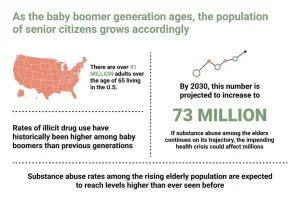Wine Allergy: Signs, Symptoms, and Allergens in Wine

Blood tests are also used to measure the presence of specific antibodies in your blood that may indicate an allergic reaction to wine. Alcohol consumption can lead to a stuffy nose due to the effect it has on your body. Alcohol is metabolized by enzymes in your liver, which convert ethanol into acetaldehyde. These chemicals cause inflammation in the mucous membranes of your nose and sinuses, leading to congestion and a stuffy feeling.
What’s the deal with wine sneezes?
Facial flushing is not always caused by alcohol and can be caused by other things like low blood sugar, menopause, skin conditions or taking certain medicines. The alcohol that we consume is broken down and converted to a chemical called acetaldehyde. Problems occur if alcohol cannot be broken down properly as acetaldehyde can build up and cause adverse effects. This document has been developed by ASCIA, the peak professional body of clinical immunology/allergy specialists in Australia and New Zealand.
Ingredients and Allergens in Beer
- While there are no specific home remedies for alcohol-induced sneezing, individuals may find relief by using saline nasal sprays or performing nasal irrigation to soothe nasal passages.
- The second reason why alcohol can cause sneezing and congestion is that wine, beer, and spirits contain histamine, a compound that elicits an allergic response.
- But if you experience odd reactions to alcohol after just a drink or two, your body may be intolerant.
Although allergies to alcohol are uncommon, symptoms can include nasal congestion, also referred to as allergic rhinitis, triggered by histamine released during the allergic response. Additionally, certain preservatives or ingredients found in alcoholic drinks can be allergens. However, alcohol-induced sneezing is usually benign and not indicative of serious medical issues. If severe sneezing occurs consistently, it’s advisable to seek medical advice, as this may indicate an allergy.

How To Prevent and Treat Alcohol Intolerance
Alcohol-related allergic reactions are not limited to alcohol itself but can also be induced by additives, preservatives, and other ingredients in alcoholic beverages. An alcohol intolerance, or ingredients like histamines in alcohol cause an allergy-like reaction in drinkers, swelling the the mucosal membranes in the nasal passages and airways. Avoiding problematic ingredients or taking a supplement to reduce acetaldehyde buildup and intolerance symptoms can help prevent nasal congestion from drinking. Research shows that around 8% of people experience symptoms like nasal congestion, flushed skin, or even headaches while drinking wine. If any of this sounds familiar to you, you might be sensitive to one of wine’s many components.
- Hodgkin’s lymphoma is a type of cancer that can affect your lymphatic system.
- You are now leaving thermofisher.com and going to questdiagnostics.com owned and operated by an independent third party.
- To determine if you’re allergic to alcohol itself, you need to be aware of the symptoms that manifest after consuming it.
- This article provides clarity by explaining the key differences between alcohol intolerance and alcohol allergy.
Medical content developed and reviewed by the leading experts in allergy, asthma and immunology. Our test detects the 40 most common indoor and outdoor environmental allergies, including pet dander, pollen, and dust. Wyndly-affiliated medical practices are online practices that help allergy sufferers achieve symptom relief. Wyndly-affiliated medical practices are independently owned and operated by licensed physicians who provide services using the Wyndly telehealth platform. Wyndly is not a pharmacy, and Wyndly is not financially affiliated with a pharmacy or any pharmaceutical company.

Alcohol intolerance and allergies: Symptoms & causes

It is important to be aware of the potential allergens present in https://ecosoberhouse.com/article/choosing-sobriety-gifts-10-great-ideas-to-consider/ wine so that those who suffer from allergies can choose wines that are safe for them to drink. Alcohol itself can cause blood vessels to dilate, which can lead to swelling, nasal congestion, and excessive mucus drainage. These symptoms can also make the nasal passage more sensitive, leading to sneezing. Drinking beer can cause sneezing due to a mild allergic reaction, an intolerance to histamines, or a genetic condition that prevents the body from breaking down alcohol efficiently. An allergy to wine is believed to be rare, though an intolerance to wine that impacts roughly 10% of people. Those with an intolerance to wine may react to certain ingredients found in wine, including histamines, sulfites, and tannins.

Asthmatics, for example, are at an increased risk of having a reaction to sulfite-containing food. If you’re frequently sneezing after drinking, you must see a doctor as there may be an underlying condition that needs to be treated. If drinking Sober living house from a glass makes you sneeze, try drinking through a straw instead.

Why does alcohol make me sneeze?
- Additionally, adding foods with anti-inflammatory properties to your diet can help reduce any irritation caused by red wine consumption.
- These allergies or sensitivities can cause a range of symptoms, including sneezing, wheezing, hives, nausea, vomiting, diarrhea, abdominal pain, and in rare cases, even anaphylaxis.
- An alcohol intolerance, or ingredients like histamines in alcohol cause an allergy-like reaction in drinkers, swelling the the mucosal membranes in the nasal passages and airways.
Allergy tests for alcohol are usually negative, but are sometimes positive to breakdown products of ethanol such as acetaldehyde or acetic acid. The human body constantly produces small amounts of alcohol, so sneezing after drinking alcohol it is unknown why some people have allergic reactions when they consume alcohol. Alcohol intolerance is a genetic condition where an individual’s digestive system cannot properly break down the substance. While occasional sneezing after consuming alcohol may not seem serious on its own—it could indicate underlying health issues that warrant attention. Chronic sneezing combined with other symptoms might point toward allergies or intolerances that require dietary adjustments.

